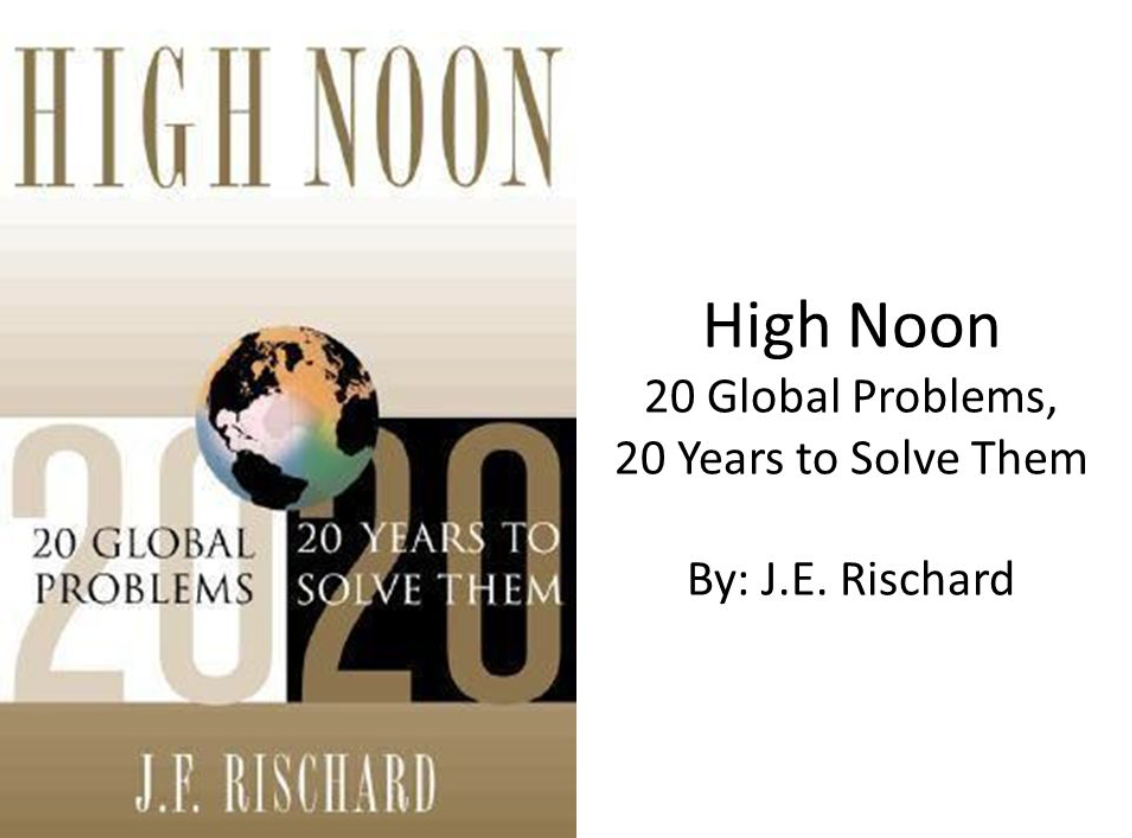Feb 17, 2019
“High Noon” Revisited – The Case for an Overhaul
Around the turn of the millennium, Jean-François Rischard wrote a book titled “High Noon” that played a key role in my view of the purpose of education and nonprofit work. In his book, he presents his list of the 20 most pressing issues facing the global community in the next 20 years. He organized his list of 20 pressing issues into three categories, including 1) planet, 2) humanity, and 3) global policy. If you have not read the book or reviewed the list, here it is.
Sharing Our Planet: Issues Involving the Global Commons
Global warming
Biodiversity and ecosystem losses
Fisheries depletion
Deforestation
Water deficits
Maritime safety and pollution
Sharing Our Humanity: Issues Requiring Global Commitment
Massive step-up in the fight against poverty
Peacekeeping, conflict prevention, combating terrorism
Education for all
Global infectious diseases
Digital divide
Natural disaster prevention and mitigation
Sharing Our Rule Book: Issues Needing a Global Regulatory Approach
Reinventing taxation for the 21st century
Biotechnology rules
Global financial architecture
Illegal drugs
Trade, investment and competition rules
Intellectual property rights
E-commerce rules
International labor and migration rules
I don’t know about your view of this list, but in my view, it could have been published yesterday, instead of nearly 20 years ago. This list of global issues is as current and relevant as it has been in the past two decades. In fact, I find it disconcerting how little progress we have made on many of these issues. It gives me pause to ask myself if we are really focusing on the things that matter.
I am a big believer and subscriber to Peter Drucker’s theory of the role of education and the nonprofit. He believed that North American society possesses three distinct sectors, including the following:
-
Corporate, in which the mission is profit,
-
Government, in which the mission is policy,
-
Nonprofit, in which the mission is transformation of people and culture.
In fact, Drucker so believed in these distinct roles that he provided a prediction on where the world needed to move in the new millennium.
>
“The 21st century will be the century of the social sector organization. The more economy, money, and information become global, the more community will matter. And only the social sector nonprofit organization performs in the community, exploits its opportunities, mobilizes its local resources, solves its problems. The leadership, competence, and management of the social sector nonprofit organization will thus largely determine the values, the vision, the cohesion, and the performance of the 21st century society.”
If I take these two authors and their collective theories at face value, we are falling behind. We kid ourselves into believing that we are making incredible strides in innovation in learning when the reality is that the same problems persist today as they did 20 years ago. Now, we all know that we have made important advances in many of these issues, but I would argue that the pace of change and compounding nature of these issues is accelerating faster than our ability to innovate.
Let’s face it. We can no longer continue to value education and our nonprofit work as an effort to improve our collective agendas. There are looming issues we are facing. Our strategies – and strategic plans – must be tied to these issues. We need to see ourselves and our work as collaborating toward a better tomorrow for our collective humanities, cultures, and circumstances. We have to see our work as integral in training the students today for the issues that we face today. We have to call upon our nonprofits to chart new courses in solving systemic issues facing humanity.
It’s time for an overhaul. We have to rethink our collective missions. We can do better. We must do better.

